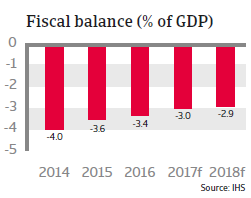With more than 58,000 cases in 2016 the number of business insolvencies was still about 5% higher than before the start of the credit crisis in 2008.
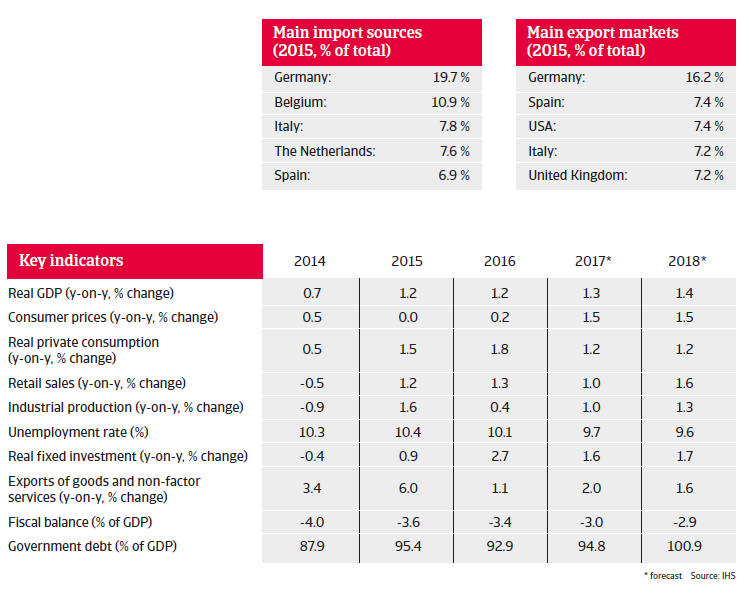
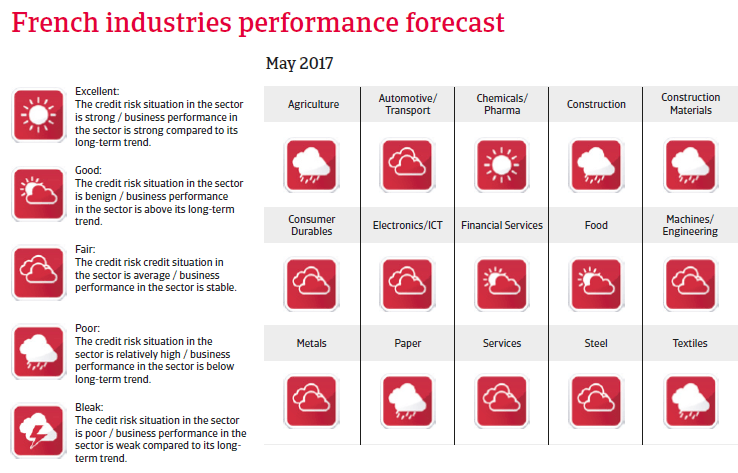
The insolvency environment
Despite decreases in 2016 and 2017, the insolvency level remains high
French business insolvencies decreased by about 8% in 2016, and in 2017 another 5% decline is expected, in line with the on-going (albeit modest) economic rebound. However, with more than 58,000 cases in 2016 the number of business insolvencies was still about 5% higher than in 2008.
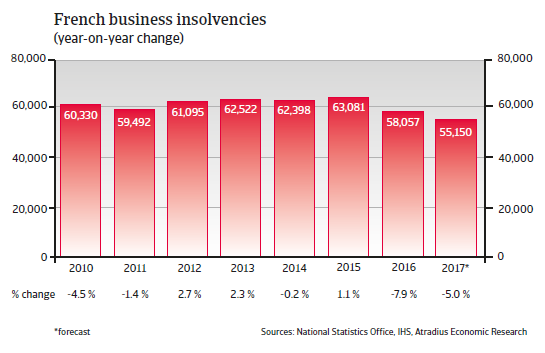
Economic situation
Growth expected to remain below eurozone average
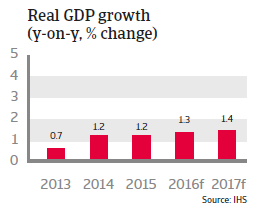
In 2017 and 2018 French economic growth is expected to increase only modestly, by 1.3% and 1.4% respectively; again below the eurozone average. Productivity remains an issue in the French manufacturing sector.
Unemployment, at least, shows a decreasing trend, which should benefit private consumption.
